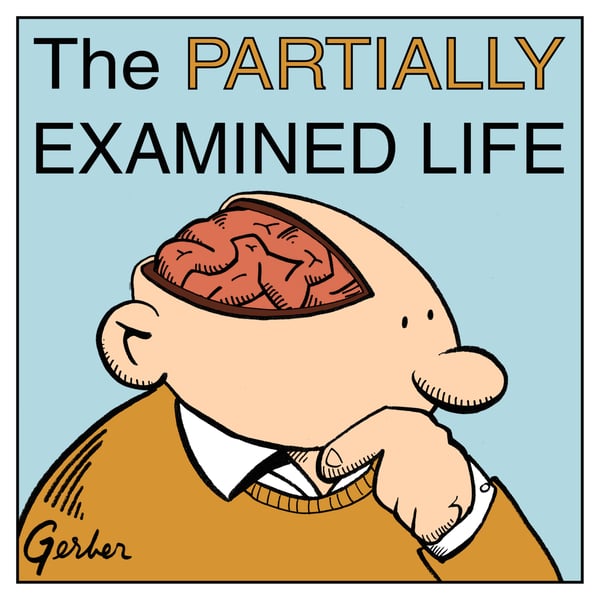Ep. 372: Kant's Ethics Lectures (Part Two)
The Partially Examined Life Philosophy Podcast
Mark Linsenmayer
4.6 • 2.3K Ratings
🗓️ 4 August 2025
⏱️ 47 minutes
🧾️ Download transcript
Summary
Continuing on the 1785 course lecture notes by Georg Ludwig Collins. We cover duties to oneself, which are actually the most important ones. There are some interesting subtleties even though Kant is clearly a creature of his time and place, e.g. in his views of sexuality.
Get more at partiallyexaminedlife.com. Visit partiallyexaminedlife.com/support to get ad-free episodes and tons of bonus discussion.
Sponsors: Visit functionhealth.com/PEL to get the data you need to take action for your health. Visit IDOU.com/PEL for 15% off online courses on using AI in creative, human-centered ways.
Learn about Mark's online political philosophy class at partiallyexaminedlife.com/class.
Transcript
Click on a timestamp to play from that location
| 0:00.0 | This episode of the Partially Examine Life is brought to you by IDOU. |
| 0:04.0 | IDOU has a whole suite of AI and design thinking programs that show you how to combine AI |
| 0:08.9 | tools with human-centered design to boost creativity, speed up insights, and solve problems in new ways. |
| 0:27.7 | You're listening to the Part examined life, episode 372, part two. |
| 0:30.5 | We've been discussing Kant's ethics lectures. |
| 0:39.9 | We had sort of finished the first two sections, the first two lectures that we'd read on his introductory observations and the supreme principle of morality, his meta-ethics. |
| 0:48.2 | And now we're going to get down to, we read several sections on duties to oneself, which he thinks are sort of the most important, the primary ones. |
| 0:50.2 | And then duties towards others. |
| 0:54.3 | And a lot of these follow, so even lying, right, the quintessential duty towards others, |
| 0:58.8 | it's not really because of the harm it's going to cause other people. It's about what it does to you and your integrity and respecting humanity as an end in itself, which, you know, |
| 1:05.0 | you're the humanity that you are most aware of, that you have the most immediate control over |
| 1:10.3 | and contact with. So, yes, a lot of these |
| 1:13.1 | things sort of actually fall out of our duties towards ourselves. In fact, some of the other, |
| 1:17.9 | like charity, we were saying he doesn't emphasize positive virtues, that it's all about |
| 1:23.3 | prescriptions. And some of what you would consider positive virtues above and beyond, |
| 1:27.0 | like charity |
| 1:27.6 | are actually like, well, nature distributes things unequally, and that's kind of not fair. So when we |
| 1:34.6 | give to charity, when we give to somebody that's in need, we're just making up for that natural. |
| 1:38.4 | So it's actually just our duty. It's not above and beyond. Like, we owe those people. We owe the |
| 1:43.3 | poor, unequal share. Like, we owe those people. We owe the poor unequal share. |
| 1:45.0 | Like, so nature, like social arrangements. |
| 1:47.8 | Society is unjust. |
... |
Transcript will be available on the free plan in 16 days. Upgrade to see the full transcript now.
Disclaimer: The podcast and artwork embedded on this page are from Mark Linsenmayer, and are the property of its owner and not affiliated with or endorsed by Tapesearch.
Generated transcripts are the property of Mark Linsenmayer and are distributed freely under the Fair Use doctrine. Transcripts generated by Tapesearch are not guaranteed to be accurate.
Copyright © Tapesearch 2025.

